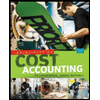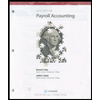Paul Howard, the new plant manager of Garden Scapes Manufacturing Plant Number 7, has just reviewed a draft of his year-end financial statements. Howard receives a year-end bonus of 11.5% of the plant’s operating income before tax. The year-end income statement provided by the plant’s controller was disappointing to say the least. After reviewing the numbers, Howard demanded that his controller go back and “work the numbers” again. Howard insisted that if he didn’t see a better operating income number the next time around he would be forced to look for a new controller. Garden Scapes Manufacturing classifies all costs directly related to the manufacturing of its product as product costs. These costs are inventoried and later expensed as costs of goods sold when the product is sold. All other expenses, including finished-goods warehousing costs of $3,640,000, are classified as period expenses. Howard had suggested that warehousing costs be included as product costs because they are “definitely related to our product.” The company produced 260,000 units during the period and sold 240,000 units. As the controller reworked the numbers, he discovered that if he included warehousing costs as product costs, he could improve operating income by $280,000. He was also sure these new numbers would make Howard happy. 1. Show numerically how operating income would improve by $280,000 just by classifying the preceding costs as product costs instead of period expenses. 2. Is Howard correct in his justification that these costs are “definitely related to our product”? 3. By how much will Howard profit personally if the controller makes the adjustments in requirement 1? 4. What should the plant controller do?
Paul Howard, the new plant manager of Garden Scapes Manufacturing Plant Number 7, has just reviewed a draft of his year-end financial statements. Howard receives a year-end bonus of 11.5% of the plant’s operating income before tax. The year-end income statement provided by the plant’s controller was disappointing to say the least. After reviewing the numbers, Howard demanded that his controller go back and “work the numbers” again. Howard insisted that if he didn’t see a better operating income number the next time around he would be forced to look for a new controller. Garden Scapes Manufacturing classifies all costs directly related to the manufacturing of its product as product costs. These costs are inventoried and later expensed as costs of goods sold when the product is sold. All other expenses, including finished-goods warehousing costs of $3,640,000, are classified as period expenses. Howard had suggested that warehousing costs be included as product costs because they are “definitely related to our product.” The company produced 260,000 units during the period and sold 240,000 units.
As the controller reworked the numbers, he discovered that if he included warehousing costs as product costs, he could improve operating income by $280,000. He was also sure these new numbers would make Howard happy.
1. Show numerically how operating income would improve by $280,000 just by classifying the preceding costs as product costs instead of period expenses.
2. Is Howard correct in his justification that these costs are “definitely related to our product”?
3. By how much will Howard profit personally if the controller makes the adjustments in requirement 1?
4. What should the plant controller do?
Trending now
This is a popular solution!
Step by step
Solved in 5 steps with 4 images









